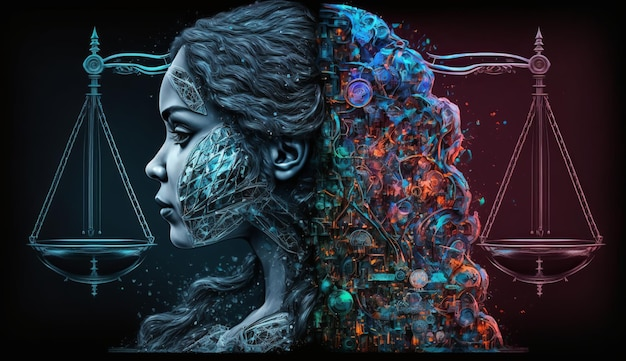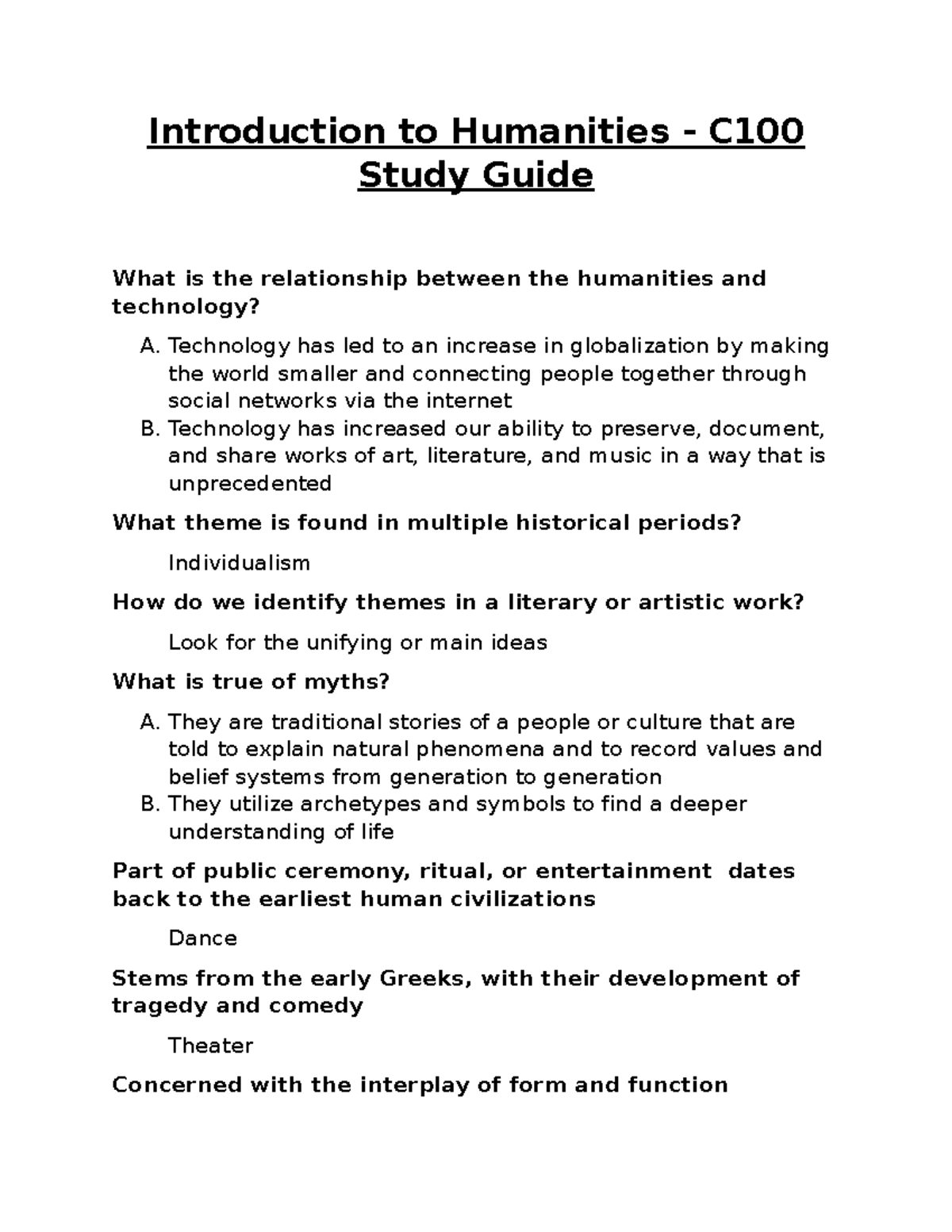AI and social justice are critical topics as we delve into the future of technology, advocating for an inclusive and equitable digital landscape. Renowned sociologist Ruha Benjamin emphasizes the importance of examining the implications of artificial intelligence on marginalized communities and how current practices often perpetuate systemic inequality. By addressing AI ethics and the realities of social justice in tech, Benjamin challenges us to reconsider who benefits from AI advancements. She argues that the notion of human-centered AI should prioritize collective well-being over the interests of tech elites. As we explore these concepts, let’s imagine a world where technology serves all, dismantling the barriers that limit creativity and innovation.
The intersection of advanced technology and equity concerns is increasingly relevant in today’s discourse about the implications of artificial intelligence. Key thought leaders, including Ruha Benjamin, are pushing for discussions that explore the moral dimensions of AI and its societal impacts. As the tech industry evolves, the focus must shift towards fostering inclusive practices that ensure fair representation and accessibility for underrepresented populations. The dialogue surrounding human-centered approaches in artificial intelligence is crucial for establishing a fairness-oriented framework that transcends traditional boundaries. By engaging with these ideas, we can begin to formulate a vision that harmonizes technological advancement with social justice.
The Role of AI in Shaping Social Justice
Artificial intelligence has emerged as a powerful tool that both influences and reflects societal values. Ruha Benjamin emphasizes that while AI offers unprecedented opportunities for progress, its implementation often perpetuates existing inequalities. Rather than being a purely neutral technology, AI systems can reinforce biases that lead to discriminatory practices in areas such as law enforcement and healthcare. This underscores the necessity for a critical examination of AI development through a social justice lens, where stakeholders actively engage in ethical considerations and equitable outcomes.
In the quest for social justice, technology must be employed to bridge societal gaps rather than create new ones. Benjamin asserts that there is a compelling need for a human-centered approach where diverse perspectives inform the design and deployment of AI systems. By ensuring that marginalized voices are included, we can create AI solutions that genuinely serve the public good and promote equity. This transformative vision aligns with the call for informed dialogues surrounding AI ethics, pushing for accountability and reflection on the societal implications of technology.
Rethinking the Future of Technology
Ruha Benjamin challenges us to envisage a future where technology serves humanity rather than a select few. The prevailing narratives often depict a dystopian future dominated by tech elites who claim to possess the answers to humanity’s challenges. However, Benjamin contends that this perspective overlooks vital contributions from the arts and humanities, which provide essential social context for technological advancements. By fostering interdisciplinary conversations, we can better understand the implications of emerging technologies and ensure that they reflect the values of justice, equity, and inclusion.
Imagining a brighter future involves re-evaluating our relationship with technology and prioritizing human values over profit motives. Benjamin’s advocacy for creativity over mere efficiency invites us to reconsider what innovations we deem worthwhile. Instead of glorifying high-tech concepts like Mars colonies, we should celebrate practical solutions such as affordable housing and accessible public services. By shifting our focus from technological utopias to meaningful social improvements, we cultivate a more sustainable and equitable society.
AI Ethics: Bridging Knowledge Gaps
AI ethics is an increasingly critical field of inquiry as artificial intelligence technologies become ubiquitous. Benjamin’s assertion that computational depth must be coupled with social and historical depth reflects a broader recognition that ethical considerations cannot be an afterthought. Effective AI solutions should emerge from collaborative dialogues that encompass a variety of viewpoints, particularly those from communities most affected by technology. By elevating diverse voices, we can create ethical standards that address both technical efficacy and social responsibility.
The intersection of AI ethics and social justice presents an opportunity to mitigate the harms caused by technology. As Benjamin states, the systems we trust to make decisions must be scrutinized for their potential biases and inequitable impacts. This calls for a transformative approach where ethical frameworks are integrated seamlessly into AI development processes. Universities and tech companies alike must prioritize social consciousness and foster partnerships with social scientists and other stakeholders to construct a more just technological landscape.
The Human Factor in AI Development
As we integrate AI more deeply into our lives, the importance of the human factor cannot be overstated. Ruha Benjamin emphasizes that technology should extend beyond mere efficiency to consider the complex realities of human experiences. Innovators developing AI solutions must understand the social dynamics at play, ensuring that their technologies do not inadvertently reinforce systemic inequalities. By adopting a human-centered AI approach, we can create tools that truly enhance human potential and well-being rather than diminish it.
Moreover, engaging with the arts and humanities equips tech developers with the necessary empathy and awareness to create inclusive technologies. Benjamin argues for a collaborative effort that merges technical expertise with social insights, creating a space where diverse ways of knowing inform AI solutions. This holistic approach not only addresses the immediate technical challenges but also prompts us to reimagine the purpose and trajectory of technology in society.
Creative Imagination: Envisioning a Better Tomorrow
Ruha Benjamin’s call for a renew ed focus on creativity and imagination is a vital response to the often reductive narratives in technology discussions. By challenging prevailing assumptions and daring to imagine alternatives, we can transcend current limitations that confine us to harmful and oppressive systems. This imaginative exercise isn’t just about critiquing the present; it’s about envisioning transformative futures that prioritize equity, justice, and community.
Creative thinking in technology can lead us to innovative solutions that are not merely iterations of existing systems but radically different frameworks that uplift all communities. Benjamin’s vision for a world beyond borders and policing is a reminder that we are not limited by what exists today. Instead, we can leverage our creativity to dismantle societal barriers, fostering an environment where everyone can thrive amidst advancements in technology.
Towards an Equitable Technological Landscape
In the pursuit of an equitable technological landscape, it is crucial to recognize the disparities that persist in access to technology. Ruha Benjamin highlights that billionaire tech leaders often prioritize their interests over the collective good, exacerbating societal inequities. A meaningful shift requires challenging these priorities and ensuring that technological advancements are accessible to all, particularly marginalized communities who have historically been excluded from technological benefits.
Creating an equitable technological landscape involves a commitment to inclusivity and social responsibility in tech development. Stakeholders must prioritize partnerships with community organizations and activists who understand the nuanced challenges faced by various social groups. By embedding equity into the technological innovation process, we can ensure that AI and other emerging technologies serve as tools for empowerment rather than oppression.
The Impact of Bias in AI Systems
Bias in AI systems has become a critical concern, as highlighted in Ruha Benjamin’s discourse on the ethical deployment of technology. Instances of AI leading to false arrests and unjust healthcare distributions showcase the dire consequences of algorithmic bias, which disproportionately affect vulnerable populations. Addressing this bias requires a rigorous examination of the data and models used in AI systems, ensuring they reflect the diversity and complexity of human experiences rather than perpetuating stereotypes.
Moreover, mitigating bias within AI systems calls for innovative approaches to data collection and representation. Engaging with communities impacted by AI decisions is essential to understanding the unique cultural and social dynamics at play. By prioritizing diverse input in the development of AI technologies, we can work towards systems that are fairer, more transparent, and ultimately better equipped to serve the needs of all citizens.
Reimagining Public Goods in the Age of AI
In a technology-driven future, Ruha Benjamin advocates for reimagining public goods such as healthcare, transportation, and education through an AI lens. She criticizes the prevalent view that cutting-edge technological advancements overshadow the necessity for accessible public services, arguing that prioritizing humane solutions can lead to a more equitable society. This shift in perspective invites us to reconsider how we approach the development of public goods, ensuring that they remain inclusive and beneficial to everyone, regardless of socio-economic status.
As we integrate AI into various sectors, it is imperative to leverage technological innovations for the enhancement of public goods. By utilizing AI to improve access and efficiency in essential services, we can foster environments that support holistic well-being. Benjamin envisions a future where technology acts as an ally in achieving social justice, driving change that redefines what is possible and reaffirms the importance of community-centric solutions.
Dismantling Mental Barriers to Imagination
Benjamin’s call to dismantle the mental barriers that limit our imagination echoes a broader societal challenge: overcoming the fear of radical change. Many individuals are conditioned to regard large-scale shifts as utopian fantasies, yet Benjamin encourages a rejection of this mindset in favor of daring visions that prioritize justice and creativity. By challenging the narratives that confine our imaginations, we can start to conceive of radical futures that transcend current limitations.
Imagining otherwise involves both a critique of existing systems and a commitment to envisioning better alternatives. Ruha Benjamin urges us to embrace this dual approach, cultivating a mindset that recognizes the potential for transformative change through collective creativity. By fostering a culture that values imagination alongside critical thought, we can unlock the door to a more just and equitable future, not just for humanity but for the planet as a whole.
Frequently Asked Questions
How does AI impact social justice in technology?
AI significantly impacts social justice in technology by reinforcing existing inequalities if not implemented thoughtfully. Technologies such as facial recognition can lead to racial profiling and biased law enforcement, disproportionately affecting marginalized communities. Thus, addressing AI ethics is crucial to ensure these technologies support social justice rather than perpetuate oppression.
What are the key concerns regarding AI ethics and social justice as discussed by Ruha Benjamin?
Ruha Benjamin raises critical concerns about AI ethics and social justice, emphasizing that AI technologies can create more oppression under the guise of efficiency. Examples include automated healthcare triage decisions that may favor certain groups over others. Benjamin argues for a deeper understanding of historical and social contexts to develop AI solutions that genuinely serve the collective good.
How can we envision a future of technology that prioritizes social justice?
To envision a future of technology that prioritizes social justice, we must encourage diverse voices in the tech development process. This includes incorporating insights from the arts and humanities, as proposed by Ruha Benjamin, to challenge current paradigms and promote creativity in solving societal issues. By doing so, we can aim for AI systems that uplift all communities rather than merely reduce harm.
Why is it important to involve humanities in AI and social justice discussions?
Involving humanities in AI and social justice discussions is vital because it broadens the understanding of societal impacts of technology. Ruha Benjamin argues that technical knowledge alone is insufficient without the context provided by humanities. Engaging with these disciplines helps develop more human-centered AI that reflects diverse needs and avoids perpetuating historical injustices.
What role do billionaires and tech elites play in shaping AI and social justice?
Billionaires and tech elites often shape AI and social justice discussions, but their motivations may not align with the common good. Ruha Benjamin critiques their focus on self-serving technologies, implying that we should be cautious in trusting their visions for an AI-driven future. It’s essential to critically assess how these influences affect policy and societal norms related to fairness and equity.
How can creativity influence the development of AI with respect to social justice?
Creativity can greatly influence the development of AI in ways that enhance social justice by encouraging innovative solutions that address real human issues. As Ruha Benjamin suggests, reimagining technology to prioritize public goods, rather than profit-driven motives, can lead to AI systems that are more equitable and responsive to societal needs. By fostering imaginative inquiry, we can envision alternatives to the current tech landscape.
What are some practical steps to ensure AI technologies promote social justice?
To ensure AI technologies promote social justice, stakeholders should implement inclusive design practices, engage diverse communities in the development process, and prioritize ethical guidelines that address biases. Additionally, ongoing dialogues about the implications of AI on society, rooted in both technical and social perspectives, can help foster systems that work towards equity rather than reinforce it.
| Key Points | Details |
|---|---|
| Radical Future Imagination | Ruha Benjamin urges citizens to envision a radically different future, unlike the dystopian narratives often portrayed. |
| Critique of Tech Elites | She criticizes billionaire tech moguls for their self-interest masked as altruism, expressing distrust in their ability to alleviate human suffering. |
| AI Technologies and Inequality | Benjamin warns that AI technologies marketed as ‘efficient’ perpetuate oppression and harm marginalized communities. |
| Ethical Decision-Making | She emphasizes that AI should not be seen as a morally neutral decision-making tool and raises concerns about algorithmic biases. |
| Need for Diverse Knowledge | Benjamin advocates for including diverse viewpoints in tech discussions, beyond just technical expertise. |
| Creative and Critical Inquiry | She calls for a shift towards creativity in problem-solving rather than just minimizing harm. |
Summary
AI and social justice are increasingly relevant topics as they intersect with our societal values and technological advancements. Ruha Benjamin calls for a proactive imagination to rethink AI’s purpose beyond harmful applications. She argues that it is essential to include diverse voices in conversations about technology, advocating for creativity and critical thinking in developing our future. By challenging the narratives surrounding AI, we have the opportunity to confront systemic inequality and envision solutions that prioritize human welfare over profit.



